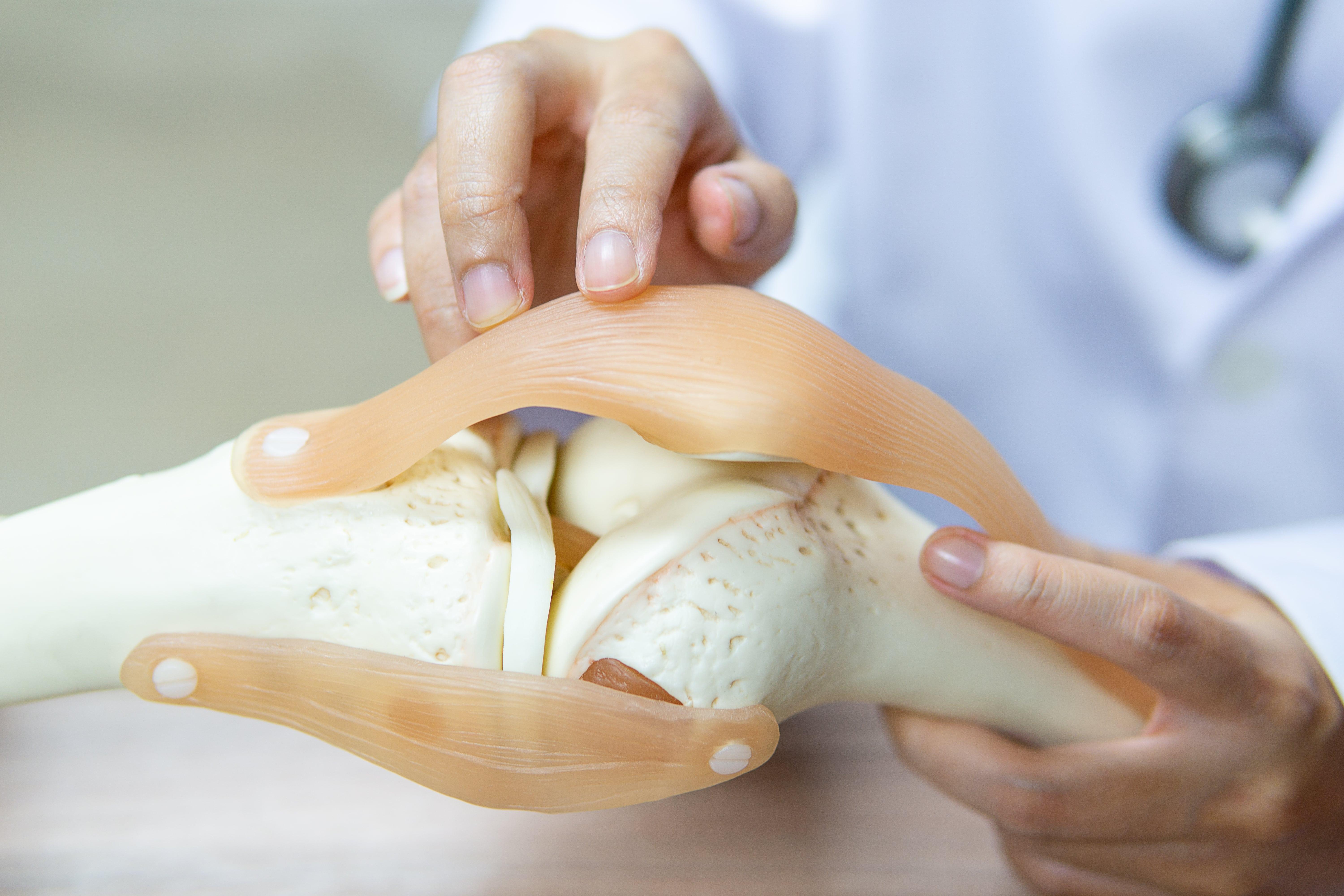 Soft tissue knee injuries are some of the most common and clinically challenging musculoskeletal disorders seen in the emergency department. Accurate and timely diagnosis increases the likelihood of fully restoring normal and pain-free use of the affected knee.
Soft tissue knee injuries are some of the most common and clinically challenging musculoskeletal disorders seen in the emergency department. Accurate and timely diagnosis increases the likelihood of fully restoring normal and pain-free use of the affected knee.
Soft tissue knee pain and related symptoms may derive from damage to one or more of the soft tissue structures that stabilize and cushion the knee joint (including the ligaments, muscles, tendons, and menisci) from infection to the knee joint or surrounding structures, or from trauma to the bones forming the joint. In addition to the etiology of the patient's presenting soft knee pain symptoms, it is important to determine the acuity of the pathologic process as an acute traumatic, infectious event or exacerbation of a chronic overuse or degenerative syndrome.
What is Soft Tissue Knee Injury?
Knee pain and related symptoms may derive from damage to one or more of the soft tissue structures that stabilize and cushion the knee joint (including the ligaments, muscles, tendons, and menisci), from infection to the knee joint or surrounding structures, or from trauma to the bones forming the joint. Accurately and timely diagnosis increases the likelihood of fully restoring normal and pain-free use of the affected knee.
Best Exercises for Soft Tissue Knee Injury
Muscle Strengthening
It is extremely important to dynamically and gently move the muscles surrounding your injury via strengthening exercises. It improves knee function and stability but should be progressed very slowly to avoid additional swelling and pain.
Stretching
Stretching may reduce knee stiffness and ease the pain. Perform the hamstring stretch and quadriceps stretch. Hold stretches for 10 to 30 seconds or as tolerated.
Low-Impact Cardio
The swelling of the knee may decrease balance and stability. Perform cardio for 15 to 30 minutes three to five times a week, increasing duration and frequency and long as you are in a pain-free condition.
Soft Tissue Knee Injury Treatment
Treatment for a soft tissue knee injury depends on the part of the knee that is damaged. Here are some lists of treatments:
Apply Heat or Ice
Heat can be used to minimize and ease muscle pain and soreness. It can also increase circulation. Ice has been found to be a good treatment for swelling. Scientifically, It reduces swell and slows your nerve conduction rate to decrease pain control.
Pain Reliever
Acetaminophen is used to treat many conditions such as headache and backache but in most case, it used to treat mild to moderate knee injury. Capsaicin cream is also a typical pain reliever. This is effective to relieve joint pain and treat minor aches and muscle spasms.
Electrotherapy
Electrotherapy uses electrical charges as a treatment for injuries to reduce pain or discomfort, repair tissues, improve the blood flow, and stimulates muscles. This is commonly done using the TENS (Transcutaneous Electrical Nerve Stimulation) machine.
Professional Help
Seek professional assistance for you to enjoy everyday life. After assessing your injury their expert opinion will guide your treatment for the fastest and most effective treatment output.
Dr. Ronak Patel is an expert in treating soft tissue damage to the knee.
Frequently Asked Questions
Can Soft Tissue Damage in the Knee Get Worse?
It can be. If a muscle or tendon is torn, it means there has been a partial or complete rupture of the soft tissues and can lead to severe soft tissue damage.
What Causes Soft Tissue Damage in the Knee?
Common causes of soft tissue damage in the knee damage are from twisting or tearing mechanism such as running, jumping, sports or accidents.
How Long Does it Take for a Soft Tissue Injury to Heal?
It depends on how serious the injury is. If it’s a grade 1 soft tissue injury, it would take two to four weeks. A grade two and three require immediate assessment and soft tissue knee injury treatment, expected for longer recovery time.
Disclaimer: Information on this website is not intended to be used in place of your professional medical advice or treatment. Please consult your doctor or healthcare provider with any questions regarding a medical condition.















